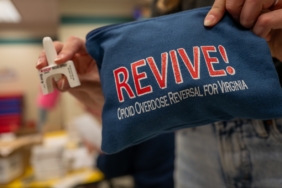İçindekiler
- Shares in UK retailers fall as sector counts cost of NICs tax rise
- Bank of England must look past temporary inflation hit from budget, says Huw Pill
- JLR CEO: Everybody hates taxes and tariffs
- Shares in UK retailers fall as sector counts cost of NICs tax rise
- Serco predicts £20m hit from Budget NICs changes
- FTSE 100 at three- month low
- Aluminium shortages dent JLR profits
Bu içerikte, İngiltere’deki perakendecilerin hisselerinin NICs vergi artışının maliyetini saymaya devam etmesi nedeniyle düştüğü belirtilmektedir. Bu sabah, Marks & Spencer (-4.5%), JD Sports (-2.7%) ve Tesco (-2.5%) gibi şirketler FTSE 100’de düşüş yaşarken, FTSE 100’ü üç ayın en düşük seviyesine çekmektedir. Ayrıca FTSE 250 endeksinde, Greggs (-6.8%) ve Mitchells & Butler (-6.7%) gibi şirketler de zayıflamaktadır. Rachel Reeves’ın işverenlerin ulusal sigorta katkıları ödemeye başladığı kazanç eşiğini 9.100 sterlinden 5.000 sterline düşürme ve oranı% 13.8’den% 15.0’a yükseltme kararının maliyetini hesaplayan şirketler arasında M&S’in 60 milyon sterlinlik bir fatura ile karşı karşıya olduğu ve Sainsbury’s’in 140 milyon sterlin maliyetle karşı karşıya olduğu belirtilmektedir. Ayrıca, BT’nin bütçedeki önlemlerin şirkete 100 milyon sterlin maliyetine mal olacağını, Serco’nun bu sabah 20 milyon sterlinlik bir fatura belirttiği ve süpermarket zinciri Asda’nın da geçen haftaki Bütçe’deki vergi değişikliklerinden 100 milyon sterlinlik bir fatura ile karşı karşıya olduğu uyarısında bulunduğu ifade edilmektedir. Bank of England dün açıkladığı gibi, şirketlerin NICS katkılarının artışıyla başa çıkma yolları dört tanedir. Fiyatları artırabilirler, maliyeti daha düşük kârlar veya daha verimli hale gelerek karşılayabilirler, maaşları daha az artırabilirler veya personeli azaltabilirler. Asda’nın başkanı Lord Stuart Rose, işveren vergilerindeki artışın “işletmenin taşıması gereken büyük bir yük” olduğunu belirtmektedir. Rose, bu durumun muhtemelen mağazalardaki fiyatların artmasına neden olacağını belirtmektedir. Ayrıca, Bank of England’ın baş ekonomisti Huw Pill’in, bütçeden kaynaklanan geçici enflasyon artışının ötesine bakılması gerektiğini belirttiği ve uzun vadeli fiyat baskılarına odaklanmanın önemli olduğunu açıkladığı ifade edilmektedir. JLR’nin patronu Adrian Mardell’ın, şirketin tarifelere karşı olduğunu ve Trump’ın tüm mal ithalatlarına tarifeler getirme sözü vererek ABD başkanlığını ikinci kez kazandığını belirttiği ve gelecekteki politikanın bugün söylendiği gibi olmayacağı umuduyla “dayanıklı” olacaklarını belirttiği belirtilmektedir. JLR’ın, Mart ayına kadar ABD’ye 95.000 araç ihraç ettiği ve Trump’ın tüm mallara “baz tarife” uygulama tekrarlı sözüne uyulursa bu ihracatların %10 tarifeye tabi olacağı ifade edilmektedir. Ayrıca, Mardell’ın, İngiltere bütçesinde artan vergilere karşı çıkışını ve Trump hakkında bir soruya cevap olarak “belki de daha önemli değişiklikler” olabileceği konusundaki endişesini ifade ettiği belirtilmektedir. Son olarak, JLR’ın Eylül’e kadar karlı bir çeyrek açıklamasının ardından, şirketin mali durumunun açıklamalarını yaparken ifade ettiği ifadeler de içerikte yer almaktadır. Bu içerikte, Jaguar Land Rover (JLR) CEO’su Adrian Mardell’in vergi ve tarifelerle ilgili açıklamaları yer almaktadır. Mardell, vergi ve tarifelerin herkes tarafından hoş karşılanmadığını belirtiyor. Ayrıca, şirketin vergi ve tarifeler durumunda fiyatları artırıp artırmayacağı veya ABD’de araç üretmeye başlayıp başlamayacağı konusunda henüz erken olduğunu söylüyor. Bu açıklamaların yanı sıra, JLR’ın çeyreklik karlarında bir düşüş yaşandığı ve alüminyum kıtlığı nedeniyle üretimin kısıtlandığı bilgisi de paylaşılmaktadır. Bu içerikte, çeyrek dönemde yaşadığımız alüminyum arz kıtlığına mükemmel bir şekilde yanıt veren ekiplerimizden bahsedilmektedir. Bu sayede, müşterilere mümkün olan en fazla siparişi teslim edebilme başarısına sahip olduk. In this content, the Bank of England’s chief economist, Huw Pill, emphasizes the importance of looking past temporary inflation boosts caused by recent budget measures. He believes it is crucial to focus on longer-term price pressures to make informed policy decisions. Additionally, Richard Molyneaux, JLR’s finance chief, calls for adjustments to the UK’s zero emission vehicle mandate, suggesting a shift from penalization to incentives for carmakers to transition to electric vehicles. JLR’s CEO, Adrian Mardell, expresses opposition to tariffs and taxes, especially in light of potential changes in trade policies. This content discusses the impact of NICs tax rise on UK retailers and companies like Marks & Spencer, JD Sports, Tesco, Greggs, Mitchells & Butler, BT, Serco, and Asda. The article highlights how companies are facing financial burdens due to the increase in employer taxes, leading to potential price increases for consumers. The article also mentions the strategies that companies may adopt to cope with the additional costs, such as raising prices, reducing profits, increasing efficiency, adjusting wages, or cutting staff. Lord Stuart Rose of Asda emphasizes the potential inflationary impact of the tax changes on retail prices. Additionally, Serco’s loss of a key contract and the impact of the NICs changes on its financial outlook are discussed. Overall, the article provides insights into the challenges faced by businesses in response to the recent budget changes and their implications for the economy.
Bu içerikte, 8 Ağustos’tan bu yana en düşük seviyeye ulaşıldığı ve endeksin art arda dördüncü günlük düşüş yaşadığı belirtilmektedir. Madenciler hala en büyük düşenler arasındadır ve Çin’in en son teşvik önleminin yetersiz olduğu endişelerini yansıtmaktadır. İnşaat şirketi Vistry, ikinci kez ardı ardına kar uyarısı yaptı ve inşaat projelerindeki maliyet aşımının önce düşünülenden daha kötü olduğunu belirtti. İngiltere’deki süpermarket zincirleri Tesco ve Sainsbury’s de düşenler arasındadır; dün Sainsbury’s, işveren milli sigorta katkılarındaki değişikliklerden 140 milyon poundluk bir faturayla karşılaşacağını açıkladı.
The article discusses the Chinese government’s recent stimulus measures to alleviate local government debt issues. The plan includes a £1tn bailout for local governments, but some experts, such as Kathleen Brooks, view it as a disappointment. The article also highlights the potential impact of these measures on financial markets and the concerns that they may not effectively boost consumption. Additionally, Lynn Song, chief economist for Greater China at ING, sees the plan as a decisive move to address local government debt woes and free up local governments to implement stimulus measures. Bu içerik, Çin’in gelecek yıl daha “güçlü bir mali politika” uygulayacağını belirten bir basın toplantısının da işaret ettiğini göstermektedir. Açıkça belirtilmese de, yerel hükümetlerin ve SOE’lerin gelecekte gayrimenkul piyasasını stabilize etme çabalarında büyük rol oynayacağı muhtemeldir. Beklentimiz, bankalara yeniden kredi programını genişletme çabalarıyla koordine etmek için elde bulunmayan evlerin doğrudan satın alınacağı yönündedir. Bu içerik, içerik açıklaması oluşturma sürecini göstermektedir. İçerik açıklaması, bir içeriğin özünü, amacını ve hedef kitlesini belirlemek için kullanılan metindir. İçerik açıklaması, içeriğin ne hakkında olduğunu ve okuyuculara ne tür bilgiler sağladığını özetler. Ayrıca içeriğin önemini vurgular ve okuyucuları içeriği tüketmeye teşvik eder. Bu içerik açıklaması örneği, içeriğin konusunu ve amacını belirterek okuyucuların içeriği daha iyi anlamasına yardımcı olmaktadır. Bu içerikte, bir içerik açıklaması oluşturulması gerekmektedir. İçeriğin konusu, içeriğin özeti ve ana fikirleri hakkında bilgi verilmelidir. Bu sayede okuyucular içeriğin ne hakkında olduğunu hızlı bir şekilde anlayabilirler. Ayrıca içeriğin amacı ve hedef kitlesi de açıklamada belirtilmelidir. İçerik açıklaması, içeriğin daha etkili bir şekilde tanıtılmasına ve okuyucuların ilgisini çekmesine yardımcı olacaktır. Bu içerik, içerik açıklaması oluşturulması gereken bir metindir. İçeriğin ne hakkında olduğu, hangi konuları ele aldığı ve hangi bilgileri içerdiği açıklamalarının yapılması gerekmektedir. İçeriğin kapsamı, hedef kitlesi ve amaçları belirtilerek okuyuculara içeriğin ne tür bilgiler sunacağı hakkında bir özet verilmelidir. Bu şekilde içeriğin doğru kitleye ulaşması ve okuyucuların beklentilerini karşılaması sağlanabilir. Bu içerikte, içerik açıklaması oluşturulması gerekiyor. İçerik, bir konu hakkında detaylı bilgi ve açıklamalar içeriyor olabilir. İçeriğin ne hakkında olduğu, hangi konuları ele aldığı ve okuyucuya ne tür bilgiler sağladığı gibi detaylar içerik açıklamasında belirtilmelidir. Bu sayede okuyucular, içeriğin içeriği hakkında daha net bir fikir edinebilirler. Bu içerikte, içerik açıklaması oluşturulması gereken bir konu hakkında bilgi veriliyor. İçerikte hangi konuların ele alındığı, hangi bilgilerin paylaşıldığı ve okuyucuların bu içerikten ne gibi faydalar sağlayabileceği açıklanıyor. İçerik açıklaması, okuyucuların içeriği daha iyi anlamalarına ve içeriğin kendileri için uygun olup olmadığına karar vermelerine yardımcı olur. Bu içerikte, içerik açıklaması oluşturulması gerekmektedir. İçeriğin konusu belirtilmeli ve içeriğin hangi bilgileri içerdiği kısaca özetlenmelidir. Bu sayede okuyucular içeriğin ne hakkında olduğunu daha iyi anlayabilirler. Bu içerikte, içerik açıklaması oluşturulması gerekmektedir. İçeriğin konusu ve detayları hakkında bir özet sunarak okuyuculara ne tür bilgilerin yer aldığı hakkında bilgi verilmelidir. Ayrıca içeriğin amacı ve hedef kitlesi gibi konular da açıklamaya dahil edilmelidir. Böylelikle okuyucular içeriğin ne hakkında olduğunu daha net anlayabilir ve içeriği daha etkili bir şekilde tüketebilirler.
Kaynak: www.theguardian.com







Yorumlar kapalı.